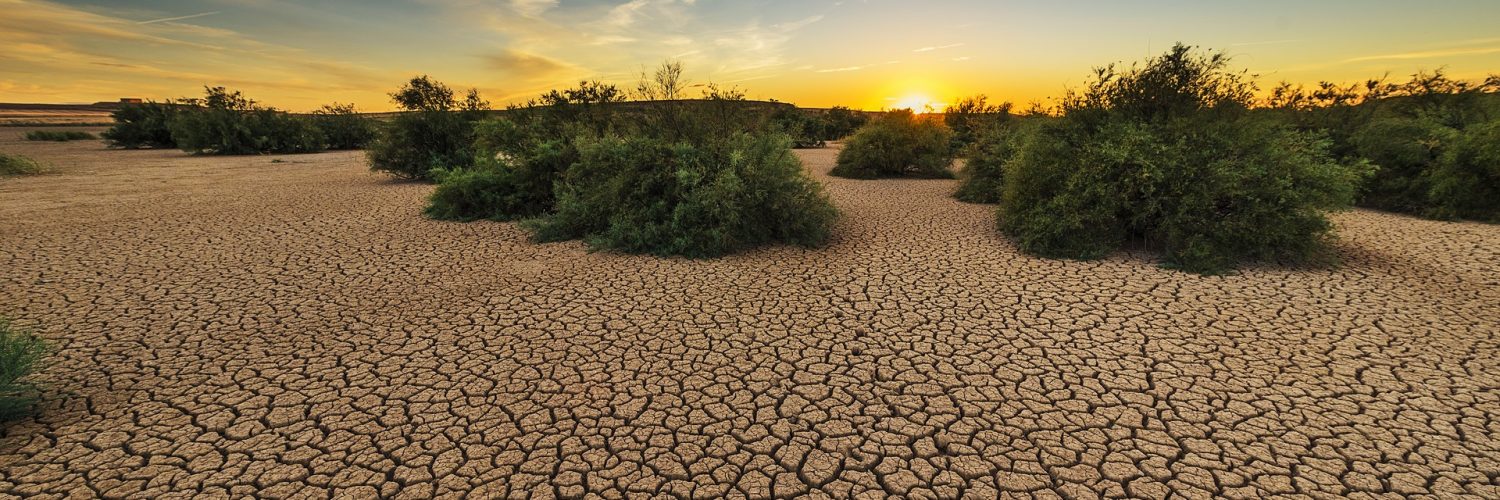Climate change is threatening military operations and soldiers in Arizona, across the nation and worldwide, warns a retired brigadier general who now heads a research and public policy organization that examines long term threats to national security.
Estimates put Arizona as the fourth–fastest warming state and Phoenix as the second-fastest warming city in the nation, and that’s placing the military at risk here, said retired U.S. Marine Brigadier General Stephen Cheney, president and CEO of the nonprofit American Security Project (ASP) in Washington, D.C.
“Extreme heat, drought and wildfires affect the day-to-day lives of Arizonans and Arizona businesses, and climate change really impacts military training and readiness,” said Cheney, who recently spoke to a group of Arizona government and community leaders at an event entitled National Security in the Time of Climate Change.

The event was hosted by the nonprofit Arizona Forward, which advocates for a balance between economic development and environmental quality in the state.
“National security is typically not a top of mind issue when we consider climate change,” said Lori Singleton, president and CEO of Arizona Forward that partnered with ASP, the Environmental Defense Fund and the Association of Defense Communities to “spotlight this critical topic.”
Heat, drought impact Arizona’s seven military bases
In Arizona, this summer’s record-breaking heat wave is undoubtedly impacting the state’s seven military bases, Cheny said. While the state hasn’t seen the devastation that bases in the country’s Hurricane Alley have suffered, the extreme heat impacts outdoor training and even the ability to deploy quickly, Cheney said.
“When temperatures reach 90 or above in the military, we call it a black flag day and literally raise a flag where all outdoor physical training stops,” said Cheney, a 30-year veteran of the Marine Corps and former member of the Secretary of State’s International Security Advisory Board and the Department of State’s Foreign Affairs Policy Board.
Extreme heat also can prevent a military plane from taking off to deploy troops to an assignment, he said.
Heat exhaustion, dehydration among soldiers rising
Active duty members suffering from heat stroke and exhaustion also are on the rise, said Cheney, citing a joint report issued by NBCNews and InsideClimateNews last year.
More U.S. troops are falling to heatstroke as the military struggles to balance training with rising temperatures, according to the report. Statistics show that in 2008, there were 1,766 cases of heat stroke or heat exhaustion among active duty members. By 2018, that number had grown to 2,792, a 60 percent increase, he said.
“It’s really posed a huge risk, certainly the health impacts, and some estimates are that it cost the military $1 billion just for that decade,” Cheney said.
Damage to military installations costing taxpayers
The U.S. Department of Defense maintains installations worldwide worth over $1.2 trillion that are critical to U.S. national security. In the past several years, military bases have seen extensive damage from climate change, Cheney said.
For example, Hurricane Florence in 2018 caused an estimated $3.6 billion in combined damages to three bases in North Carolina: Camp Lejeune, Marine Corps Air Station New River, and Marine Corps Air Station in Cherry Point.
Military funds had to be reallocated to handle hurricane repair along with curtailing training and deployments, Cheney said.
Not the radical left wing
Cheney, who has seen firsthand the damage caused by increasingly erratic weather at military bases, said he and other retired military officials and others are trying to create awareness around the topic that often is described as a “left wing” issue, he said.
“It’s not a Republican or Democrat issue. It’s a national security issue and it’s not going away,” Cheney said.
Worldwide conflicts and instability also can be tied to climate change, he said. One example is the long drought in Syria that dried up agricultural yield, driving people from rural areas into cities that helped fuel conflicts with ISIS.
Military and national security initiative for carbon-free air
The ASP, its board and more than 80 military and national security leaders that have joined its Consensus for American Security initiative want to raise public awareness about concerns that affect national security like climate and energy security, terrorism, economic competitiveness, trade, public diplomacy, and more.
Through research, they are making public policy recommendations to forge bipartisan consensus on national security strategy.
Among the policies they are recommending to address changing weather are investment in clean and renewable energy, more weather resistant military installations and global partnerships to fight climate change.
“We really can’t afford to ignore the risks,” Cheney said. “If there’s one thing that’s threatened most, it’s our national military and we’re seeing it worldwide.”
To read more about the ASP and threats to national security, go to: American Security Project.
About Arizona Forward
Arizona Forward is the state’s leading sustainability not-for-profit organization that has successfully worked on major environmental initiatives for Arizona since 1969. The organization leverages its collective power by forming partnerships with Arizona business leaders, local and state officials, state education leaders and policymakers to drive how the state can best grow its communities, stimulate the economy and enhance the environment.
















Add comment